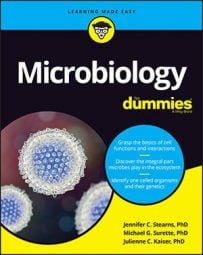The question of why to study microbiology is a good one — the impacts of microorganisms on your life may not be immediately obvious. But the truth is, microorganisms not only have a huge impact but are literally everywhere, covering all the surfaces of your body and in every natural and urban habitat.
In nature, microorganisms contribute to biogeochemical cycling, as well as turnover of material in soil and aquatic habitats. Some are important plant symbionts (organisms that live in intimate contact with their host, with mutual benefit for both organisms) whereas others are important pathogens (organisms that cause disease) of both plants and animals.
Although not all microorganisms are bad, the treatment and prevention of the diseases caused by bacteria, viruses, protozoa, and fungi have only been possible because of microbiology. Antibiotics were discovered through microbiology, as were vaccines and other therapeutics.
Other applications of microorganisms include industries like mining, pharmaceuticals, food and beverages, and genetics. Microorganisms are important model organisms for studying principles of genetics and biochemistry.
Many professions require you to learn some microbiology. These professions include but are not limited to
Nursing
Medicine
Clinical laboratory work
Pharmaceuticals
Brewing and winemaking
Environmental engineering

